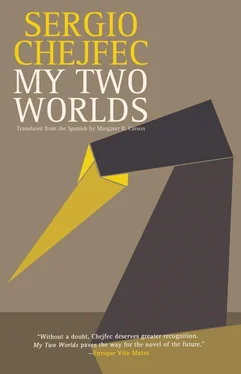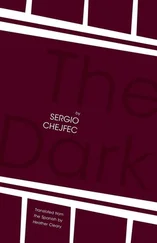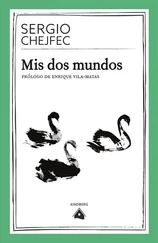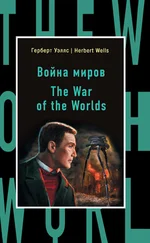The clouds of mist and water drops filling the air didn’t make for clear sight, but I was able to distinguish my own self, sitting with my legs crossed, the small backpack on my lap, and I saw the old man too, at the far end of the bench, to my left, resting or fast asleep, turning to good account the tranquility of the place and the afternoon. I could make out beyond us, some meters back, a group of people sitting on the grass, in what seemed a gathering of family or friends. From time to time one of them would get up to joke around with another, to tag him and then go running off, for instance, or to startle him, whatever. Now and again a man stretched his arms over his head, which caused him such evident pleasure that he decided to lie down on his back and pretend to be asleep. I could hear voices and bursts of laughter, at irregular intervals, of course. But what amazed me was that even though I could see them all on the far side of the fountain, beyond my companion and myself, I heard them as if their voices came from behind us, from where we were actually seated. Perhaps this was another effect of the place or, more precisely, of the mist created by the jets of water, which dissolved present time and distorted space; or it could have been a consequence of the symmetry. The present: until that afternoon I had rarely noticed the confused, and at times inconsistent, meaning of this word, to which we should add the sense of ambiguity it often possesses. .
Beneath the circle of moisture, I imagined I could be the old man with his shoes off; and that thanks to this miraculous coincidence of time, place and circumstance, I was visiting myself from one extreme of the wide band called the present, to a still broader recess, vaguer and, as I put it before, more meandering, called the past. I had traveled to this park to call on myself, for instance, after having distributed my bequests. The worthy cigarette lighter, unengraved, to a nephew, the prized ivory binoculars to a niece, and the reverse wristwatch, to the youngest, a nephew, so that the lesson implicit in the mechanism would last the longest. At first I wasn’t struck by the incongruity of handing down a watch which had never belonged to me. And when I realized my error, I chalked it up to confusion or to the absentmindedness that can afflict an older person, like my benchmate.
My nephew reacted with some discomfort. The watch was outlandish, but he failed to understand the symbolic or pedagogical importance I had wanted to give it. I pressed it on him unemphatically, in my way, that is, half-indifferent and a bit complacent, so as not to completely frighten him off from an idea that he might in the future, on reconsideration, accept; my lackluster style of arguing, however, undermined a good part of my argument, and aside from that I argued without conviction, as is normal for me anytime and anyplace. He was the youngest and he was the best. How to put it. . the one who was most receptive and open, who wanted to know everything, to imbibe the world in every breath. The watch, in short, was a time machine that would allow him to connect to the past; not to visit it or glimpse it, just to connect. Not with the future, true; but who cares about the future if it arrives no matter what, I declared to a child for whom the past meant nothing. And to allay his distrust I offered him proof; it was so well-suited to connecting with the past that during a trip to the south of Brazil I happened to see myself in a park, taking a rest on a hot afternoon under a bougainvillea.
After I sat down on one end of a bench, I continued, I loosened my shoelaces, stretched my legs, and sighed in relaxation as I closed my eyes, ready to let myself be carried along for a time by the noises of the afternoon and the deep shade. A moment later I took off my shoes in the proper way, using my heels. And at that point I realized what was happening: the absentminded gentleman who was sitting on my bench, and who appeared to be thinking of nothing, was a representative from my past, a retrospective warning; that’s why his mind was completely blank, at most he was pondering the challenges presented by hunger and his need for food that night, because the idea of going into a restaurant or a café alone tortured him, put his painful shyness to the test, and took up an unspeakable amount of time, a continuous present. This was in part a result of his endless walks whenever he was visiting a city, because he was afraid of going into any given place and being identified as an impostor or, more realistically, simply being treated badly for no reason at all.
When I awoke, everything was in its place. The old man let out a barely audible snore, which at times stretched into a sort of languid and seemingly definitive exhalation. A woman strolled slowly past in front of us, accompanied by her small dog. In a bag she carried the maté kit I’d seen her using as she sat on one of the benches in the sun. She strolled by, as I said, and as she did so she proffered us a look of complicity, as if she sought to fraternize with the park’s habitués. That may have applied to the old man, but not to me. The dog cast a similar glance at us, with no need to check its owner’s expression first to see what she did. It’s hard to describe the sensation of a task well done that assailed me at that moment: I believed that I’d found the key to a certain inner life of the park. In a few hours of walking and contemplation, I achieved what I’d so rarely managed before, even in places I’d lived in for months or years: to be considered a denizen of the place. From my point of view, the sole reason this took place originated in one of the terrain’s most outstanding virtues: its natural division into specific areas, which led to one’s forgetting about the other areas entirely. It had happened to me in the aviary, in the labyrinth-garden, and it was happening to me now by the fountain on the alameda. Despite their lack of physical boundaries, these were well-circumscribed spaces, confined and self-sufficient, which had a world effect, though there must be a better term for it, an exemplary, hard-earned balance between landscape and atmosphere, with an obvious impact on people’s powers of perception.
The effect of that layout was a deceptive appeal, because at first you believed you were in a park, while in fact you were in several at once, though in none of them, however, did you see that flashiness associated with the most widespread and predictable ideas of natural beauty. It was a park on the edge of extinction and oblivion, that was obvious, but it lived on thanks to its invincible beauty and to the wisdom that had designed it to endure in times of destruction. The breeze shifted every now and then, bringing minuscule drops from the fountain my way, which nonetheless didn’t soak me, but rather refreshed me like dew. In a bit I would be getting up and resuming my walk; I had known that before I’d made my decision. The powerful jets of water competed with one another to go the highest, and some of them, those which because of a defect or a deflection at their base veered sideways, traced a parabola that was hard to make out when the jets crossed each other, or when they reached their highest point, known as the apex I believe, and began to descend.
Through the spray of water I saw the bougainvillea on the other side of the esplanade. I’m not exaggerating when I mention the curious refraction of its brilliantly colored petals, deep red, as I said before, which as they became smudged like a still life in an Impressionist landscape, faded, were less strident, more opaque, and strangely, thanks to the watery effect, these same petals became more tangible, as if their natural adornment had overwhelmed them and the water particles and mist sought to correct this excess. I sat like that for a while, in wonder at the workings of the fountain. Its circular basin was, logically, full of water, near overflowing. It was odd to see how a boiling effect was created — I know no better way of describing it — a consequence of the thousands of drops of water striking the surface. For a moment it seemed to me that the jets of water, launched up from the widest variety of places and at random, and yet with the purpose of creating an illusion of freshness and turbulence, shot into the air not as jets, I mean, not as water forcefully expelled and sent in a predicted direction, but instead as traces of dotted lines marking out a journey. The water wasn’t flowing, in reality someone had drawn it, just like the fountain — a stone grey made with soft graphite — and the esplanade, too, had been drawn somewhat lighter than its physical version, as the trees had been with their various intensities, the patches of shade beneath or between them, and also the people, alone or in groups, who’d been sketched as well in the most schematic or typical poses to adopt in a park. Even the water drops, whether the ones that exploded in splatters on the surface, or the lightest, most volatile, nearly vaporized one, were all, thanks to its display of minutiae, represented in the drawing.
Читать дальше












